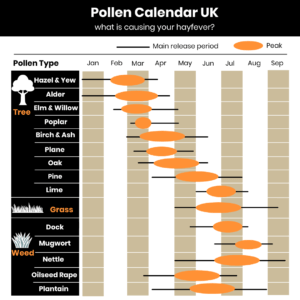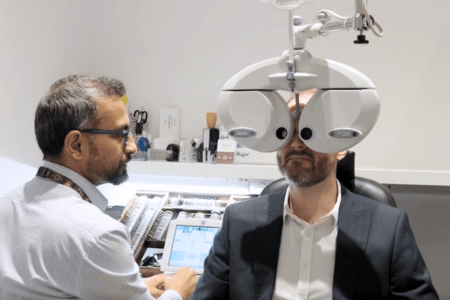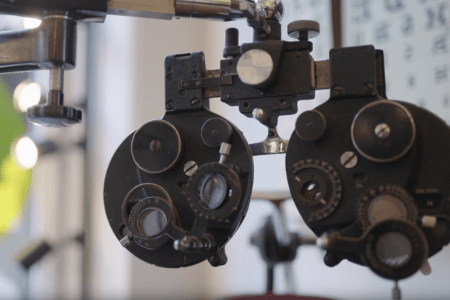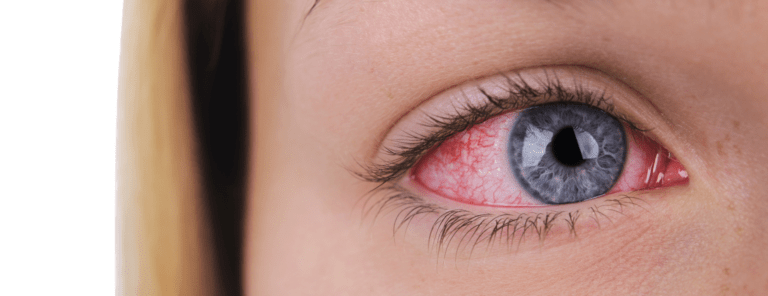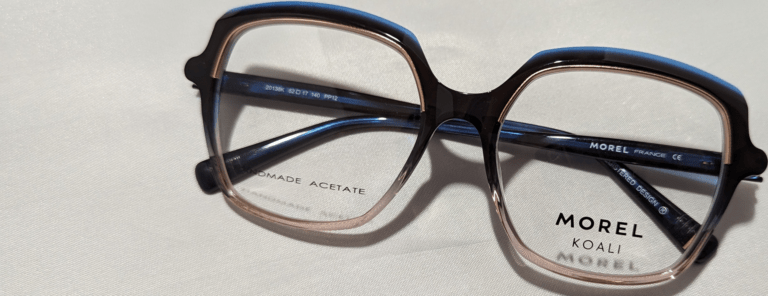
Hay Fever Eye Relief: How to manage Hay Fever symptoms and eye allergies
UNDERSTANDING HAY FEVER AND ALLERGIC CONJUNCTIVITIS
Our environment is filled with airborne allergens like pollen, mold spores, dust mites, and pet dander. When these particles come into contact with your eyes and nose, they can trigger an allergic reaction. Unlike food allergies or reactions to bee stings, airborne allergens specifically target the eyes and nose due to direct contact. Even some medications and cosmetics, especially those containing preservatives in eye drops, can cause eye allergies in some people. Thankfully, there are now preservative-free options available in single-use units, multi-dose bottles, and even sprays.
Allergic conjunctivitis, a common eye problem, occurs when the conjunctiva (the clear membrane covering the white part of your eye) becomes inflamed due to an allergic reaction. Seasonal allergic conjunctivitis, often referred to as the “eye component” of hay fever, is the most prevalent form. In the UK, where allergies affect roughly 20% of the population, and around 20% of those experience eye problems, seasonal allergies often peak between May and July due to high grass pollen concentrations.
How Does Allergic Conjunctivitis Happen?
When an allergen reaches the eye’s surface, it triggers an immune response. This reaction releases histamine, a chemical that causes inflammation in the tears and surrounding tissues. This inflammation leads to the telltale symptoms of allergic conjunctivitis, including redness, swelling, itching, and watery discharge. This condition doesn’t affect eyesight.
There are two main types of allergic conjunctivitis:
Seasonal Allergic Conjunctivitis: This form is triggered by seasonal allergens like pollen.
Perennial Allergic Conjunctivitis: This less common type results from year-round exposure to allergens such as dust mites.
Although allergic conjunctivitis is generally not considered to be “serious” condition, it can have an impact on quality of life during an acute episode and can lead to significant distress and irritation if not resolved.
QUIZ: HAYFEVER, EYE ALLERGIES SELF-TEST
Take this quiz to see if you might have eye allergies. Always consult your optometrist / general practitioner if you suspect you have an eye condition needing care.
Do your eyes often itch, particularly during spring pollen season?
Are you allergic to certain animals, such as cats?
Have you ever been diagnosed with “pink eye” (conjunctivitis)?
Do allergies run in your family?
Do or have you ever used antihistamines and/or decongestants to control sneezing, coughing and congestion?
When pollen is in the air, are your eyes less red and itchy when you stay indoors under an air conditioner?
Do your eyes begin tearing when you wear certain cosmetics or lotions, or when you’re around certain strong perfumes?
If you answered “yes” to most of these questions, then you may have eye allergies.
SIGNS AND SYMPTOMS
- Itchy, pink eyes
- Puffy / swollen eyelids
- Clear watery discharge
- Mild photophobia (discomfort to bright lights)
- A runny nose
- Sneezing and coughing
- Itchy nose, mouth or throat
- A headache from sinus congestion
In addition to these symptoms, you also may feel fatigued and could suffer from lack of sleep.
GENERAL EYE ALLERGY TREATMENT
Avoid Triggers: Identify and limit exposure to allergens (pollen, dust mites, pet dander). Keep windows closed and use air purifiers during high pollen season.
Soothe & protect: Apply cool compresses for swelling and use preservative-free eye drops. Wear wraparound sunglasses outdoors. Wash bedding frequently and wash hair before bed to remove allergens.
Don’t Rub: Rubbing releases irritants, worsening symptoms.
MEDICATIONS
If you’re not sure what’s causing your eye allergies, or you’re not having any luck avoiding them, your next step probably will be medication to alleviate the symptoms.
Over-the-counter and prescription medications each have their advantages; for example, over-the-counter products often are less expensive, however, prescription ones usually are stronger and may be more effective.
Over-the-counter:
Antihistamines: Ease itching, watering eyes, runny nose, and sneezing.
Decongestants: Help shrink swollen nasal passages for easier breathing and reduce redness temporarily (beware of rebound redness with overuse).
Prescription:
Mast cell stabilizers: Offer long-term relief from redness and swelling (best used before symptoms start).
NSAID eye drops: Reduce inflammation for seasonal allergies.
Corticosteroid eye drops: Provide quick relief but may have side effects like glaucoma or cataracts (consult your doctor).
EYE ALLERGIES & CONTACT LENSES
Even if you are generally a successful contact lens wearer, allergy season can make your contact lenses less comfortable. Several of the medications oral and topical used to reduce symptoms have the undesirable side effect of reducing tear film secretion leading to symptoms of dry eye.
Airborne allergens can get on your lenses, causing discomfort. Allergens also can stimulate the excessive production of natural substances in your tears, which can bind to your contacts and cause blur and additional discomfort.
Recent Studies have shown that Daily Disposable (single use) contact lenses are least prone to accumulate airborne allergens / tear deposits which build up over time causing allergy-related discomfort. The wearing of daily disposable lenses has also been shown to reduce symptoms of itching as they act as a protective membrane whilst also reducing the temptation to rub the eyes.
HAY FEVER – LOOKING AFTER YOUR EYES
For the best course of action or if you have any concerns about the health of your eyes, please call us on +44 20 7353 4455 to arrange an appointment, or you can make an appointment online.

